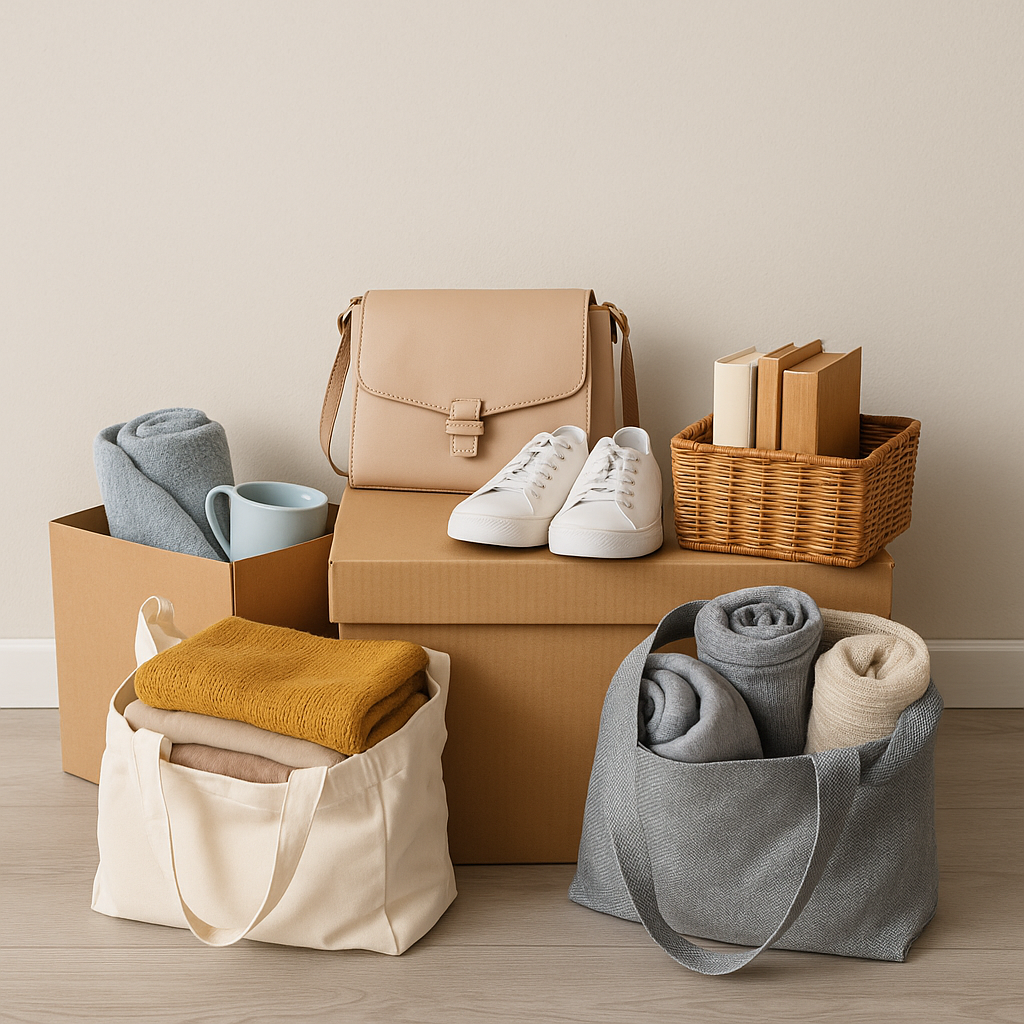What You Can and Can’t Donate to an Op Shop

Op shops aren’t just treasure troves for bargain hunters – they’re vital community hubs!
Every jacket sold might fund a night’s accommodation for someone sleeping rough. Every teacup could help pay for school supplies. Every bookshelf helps keep a charity’s doors open.
But here’s the tricky bit: not every donation helps. Well‑meaning people drop off bags of broken, stained or unsafe items thinking, “Someone might want this.” More often than not, those items cost op shops thousands of dollars a year to dispose of – money that could have gone straight into community programs.
This guide lays it out simply:
- What you should donate
- What you shouldn’t (and why)
- And how to prepare things so they go straight onto the shop floor rather than the skip bin.
What You CAN Take to an Op Shop
If an item is clean, safe and in good nick, there’s a fair chance your local op shop will gladly take it.
Clothing & Shoes
- Good quality, washed and wearable clothing for men, women and kids
- Jackets, coats and seasonal gear
- Shoes in pairs, soles intact, no holes
Why? Clothes keep the tills ringing. Op shops rely on steady turnover of affordable, wearable clothing. Volunteers don’t want to wade through bags of torn shirts and odd socks – clean, wearable pieces mean they can get items on racks quickly.
Homewares
- Pots, pans, crockery, glasses, utensils
- Décor like vases, cushions and framed prints
Why? These basics are snapped up by students, young families and anyone setting up a home on a budget.
Books, DVDs & Music
- Novels, cookbooks, kids’ books – anything with all its pages
- DVDs, CDs, vinyl in their original cases
Why? Easy to price, easy to store, and they bring people into the shop who might pick up a few extra things.
Toys & Games
- Complete puzzles and board games
- Soft toys that are clean and safe
- Battery‑operated toys that actually work
Why? Families love them, and quality donations mean less sorting (and less binning) for staff.
Small Furniture
- Coffee tables, side tables, chairs, shelves
- Anything sturdy, not falling apart, and light enough for someone to move
Why? Small furniture sells well and raises solid funds. Bigger items are sometimes accepted but always check first.
What You SHOULDN’T Take to an Op Shop
Some things just aren’t suitable – even if you think they “might come in handy for someone.”
Broken, Dirty or Unsafe Items
- Clothes with stains, rips or missing buttons
- Shoes missing soles or straps
- Furniture covered in mould or pet hair
Why? If you wouldn’t give it to your sister or best mate, it’s not op shop‑worthy. Unsafe items simply can’t be sold.
Mattresses, Pillows & Bedding
- Most op shops won’t take mattresses or pillows, no matter how clean they look.
Why? Hygiene rules. Simple as that.
Electrical Goods
- TVs, kettles, hairdryers, microwaves – anything with a cord
Why? They need safety testing before sale, and many stores just don’t have the resources.
Car Seats, Helmets & Prams
- Baby car seats, bike helmets, some prams
Why? Safety standards change all the time, and second‑hand gear often won’t meet them.
Hazardous or Oversized Items
- Paint tins, gas bottles, chemicals
- Huge wardrobes that need six people to lift
Why? Dangerous goods can’t legally be handled, and giant furniture is a storage nightmare.
How to Prepare Your Donations Properly
A little effort at home saves a lot of effort for volunteers.
Sort first. Make three piles: keep, donate and chuck. Don’t “wish‑cycle” – that’s where you donate things you know should be binned, hoping the op shop deals with it.
Wash or wipe down. Run clothes through the wash, give kitchenware a scrub, and dust off furniture. No one’s expecting freshly ironed shirts, just items that don’t smell like the back of the garage.
Bag and box properly. Use strong bags or boxes so things don’t split open in the car park. Tie shoes together or put them in pairs.
Check store hours. Leaving bags out the front after hours isn’t donating – it’s dumping. Items get soaked in the rain or stolen, and the shop has to clean it up.
Why This All Matters
Thoughtful donations keep the whole op shop system running. When you hand over clean, usable things, volunteers can get them on shelves straight away. That means more sales, more funds and more help for the causes those shops support.
When you drop off broken junk, you’re basically handing the charity a bill for rubbish removal.
The Bottom Line
Before you fill a bag for the op shop, ask yourself:
- Would I give this to a friend?
- Would I be happy to use this myself?
If the answer’s yes, it’s probably perfect for an op shop. If not, don’t saddle them with it – find another way to recycle or dispose of it.
Good donations don’t just clear out your cupboards, they fuel charities, reduce landfill and give someone else the chance to love your things all over again.
